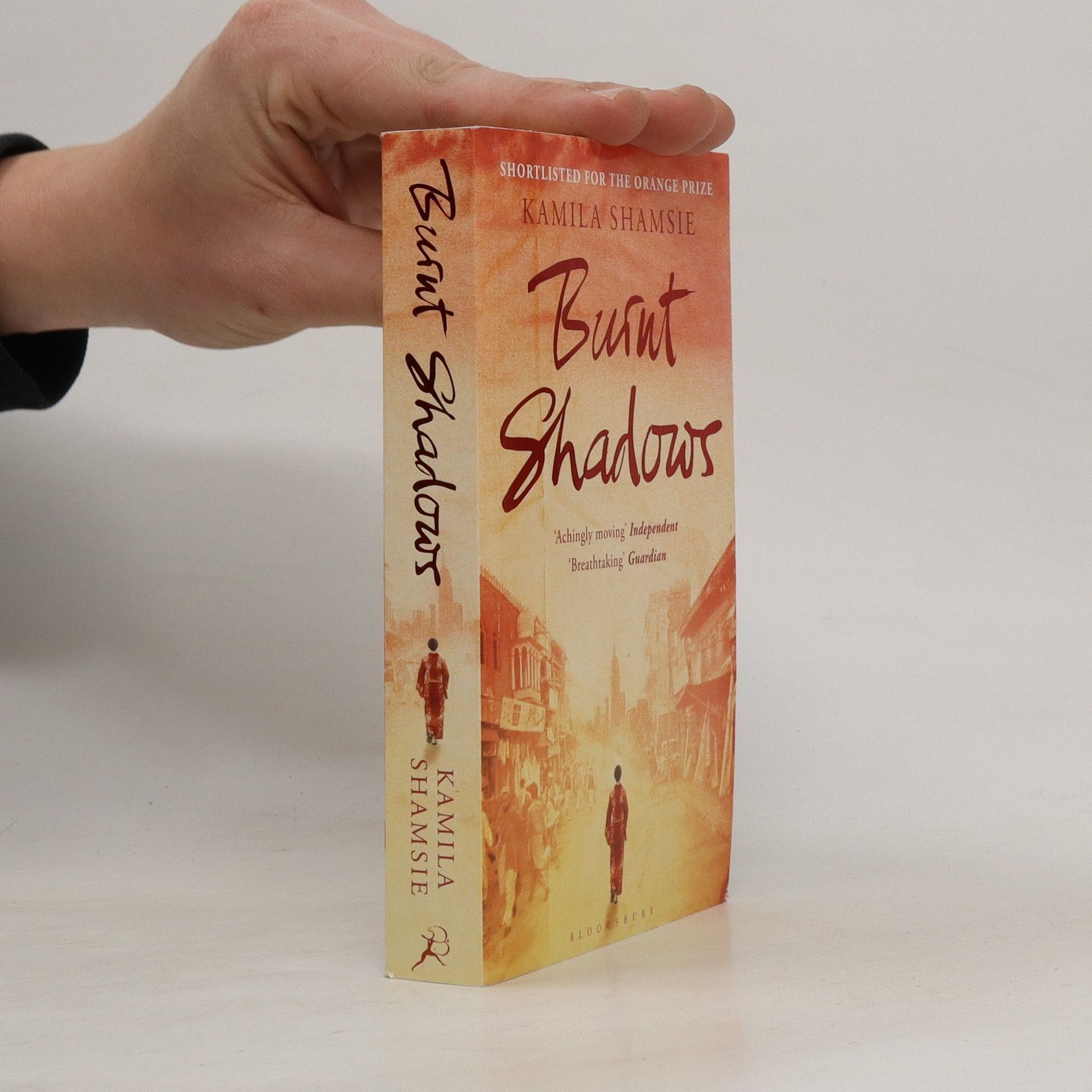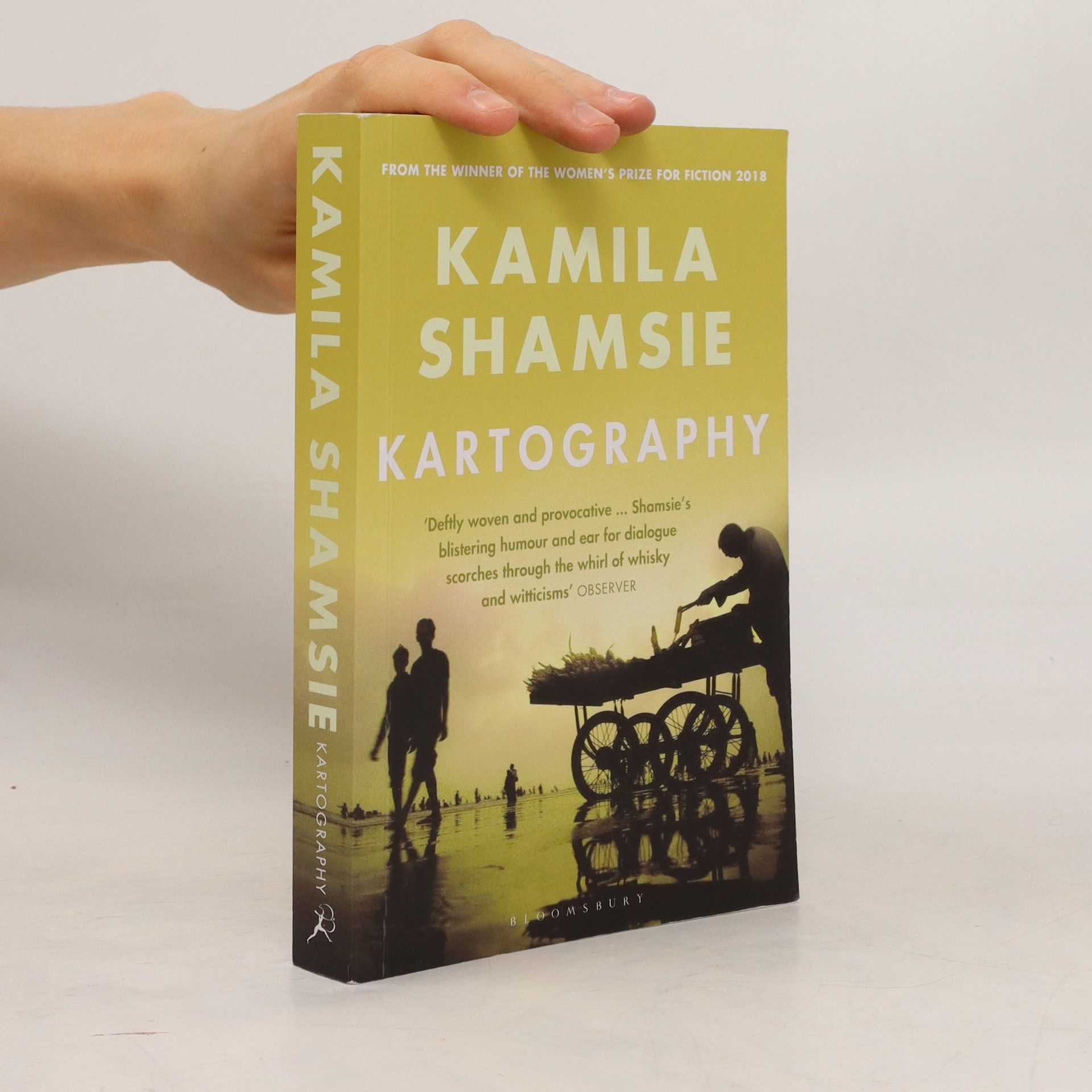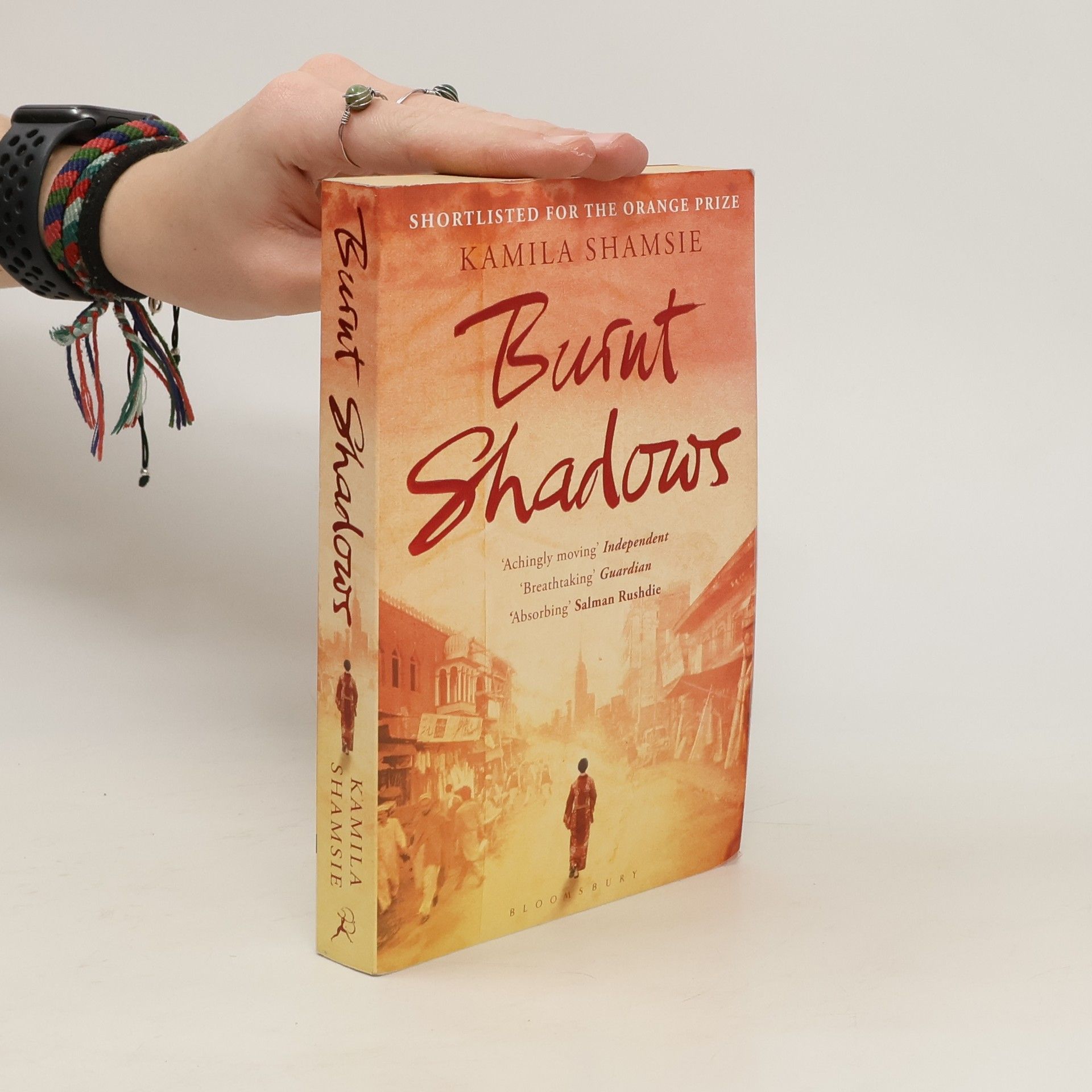From Pakistan' s most acclaimed young writer.
Kamila Shamsie Livres
Kamila Shamsie est largement reconnue pour son exploration nuancée de l'identité, de l'appartenance et des intersections complexes de la culture et de l'histoire. Ses récits se déroulent souvent sur fond de Pakistan, abordant des thèmes tels que l'amour, la famille et les bouleversements politiques avec une prose lyrique distinctive. Shamsie tisse magistralement des histoires personnelles avec des préoccupazioni sociétales plus larges, offrant des aperçus profonds sur la condition humaine. Son œuvre est célébrée pour sa profondeur émotionnelle et sa capacité à éclairer les expériences vécues de personnages naviguant dans des mondes en mutation.




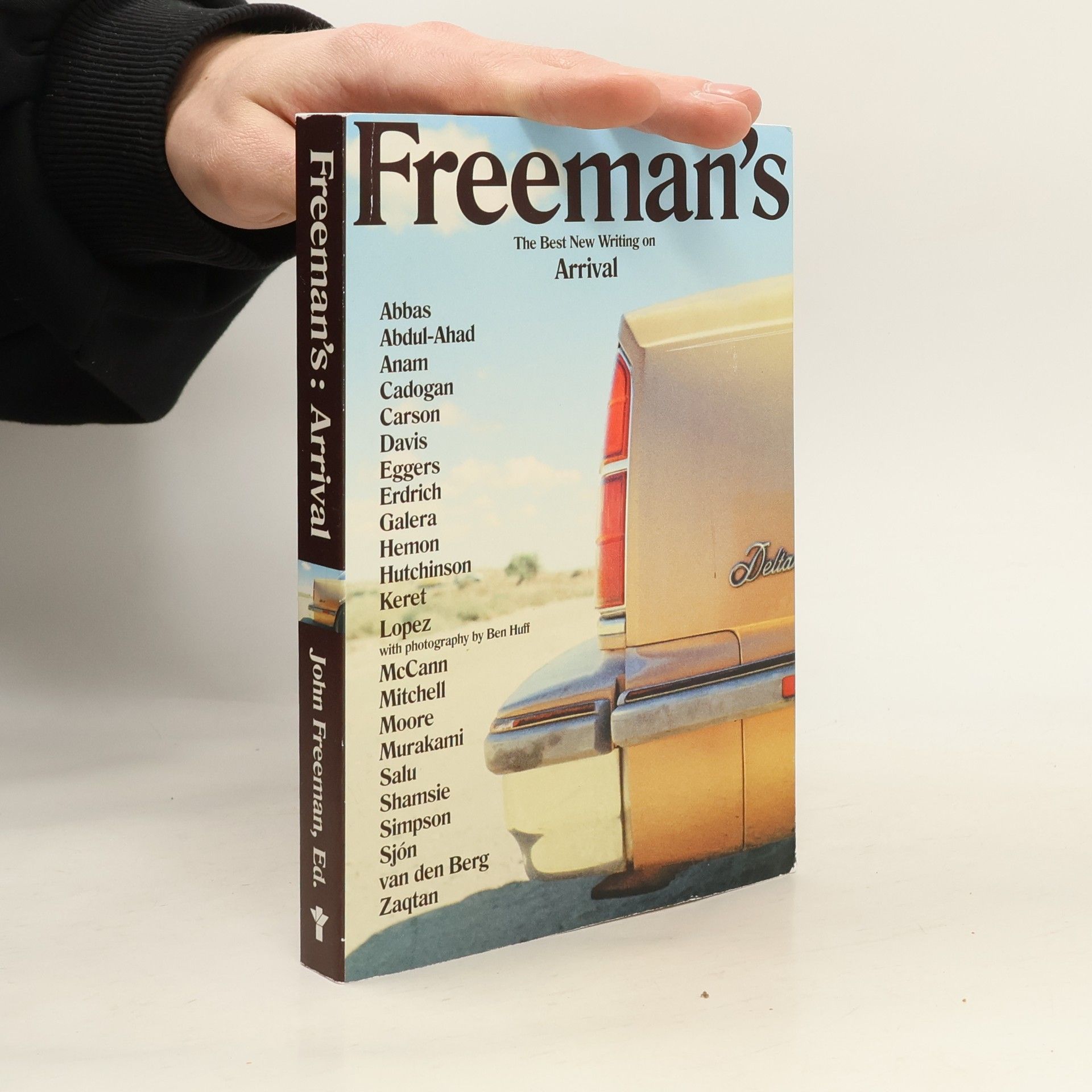

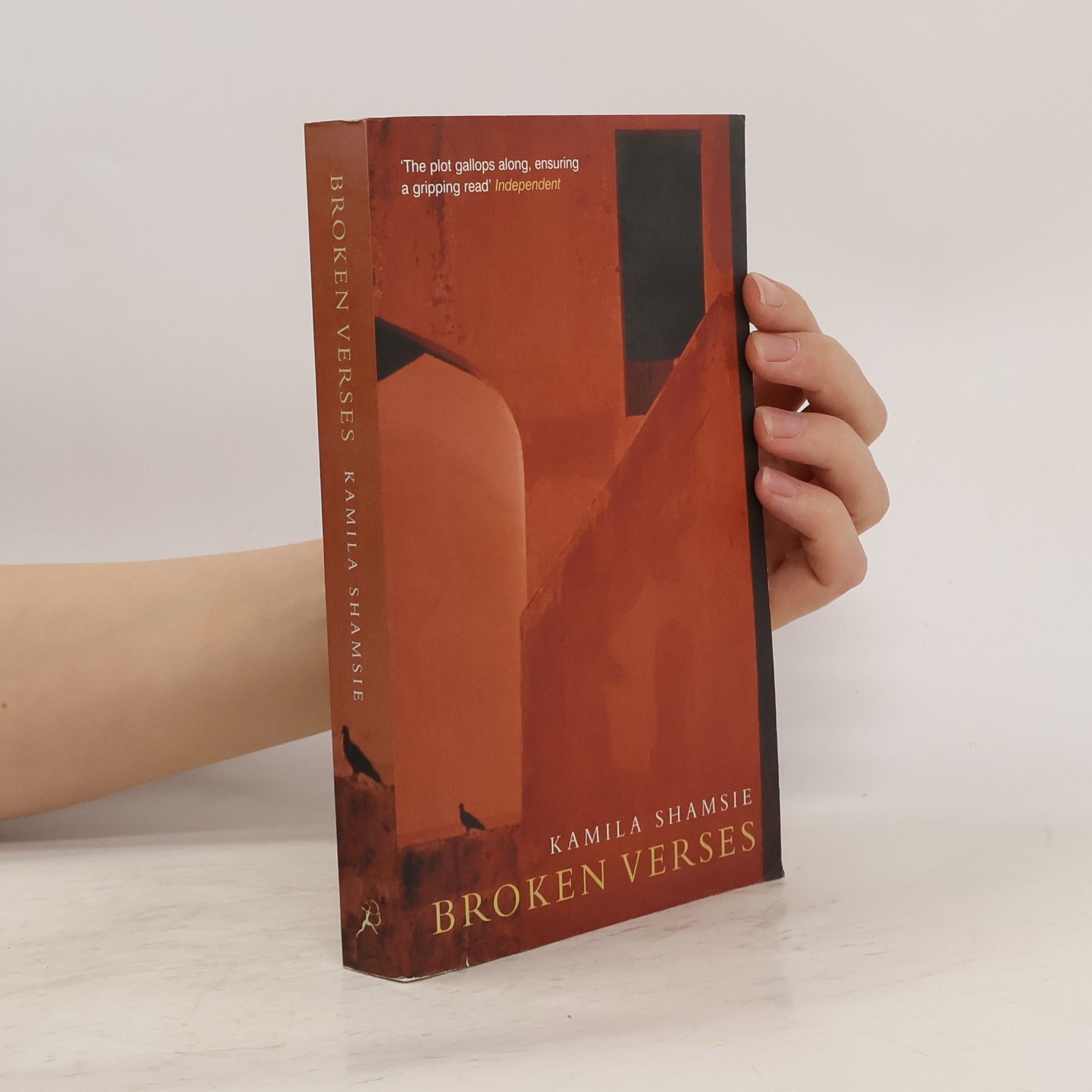
A new anthology project from renowned and beloved literary critic John Freeman, Freeman's: Arrival collects never-before-published writing from some of the best-known authors working today, each contributing a piece on the theme of "Arrival." Contributors include Haruki Murakami, Louise Erdrich, Dave Eggers, David Mitchell, Elena Ferrante, Kamile Shamsie, Sjon, Colum McCann, Daniel Galera, Aleksandar Hemon, Ghassan Zaqtan, Etgar Keret, Anne Carson, Tahmima Anam, Helen Simpson, Ishion Hutchinson. Garnette Cadogan, Barry Lopez, Ben Huff, Fatin Abbas, Michael Salu, Honor Moore, Lydia Davis and Laura van den Berg, and a photo essay introduced by Barry Lopez. Freemans: Arrival is an essential addition to the library of anyone interested in the best of contemporary fiction.
Safely Gathered In
- 192pages
- 7 heures de lecture
In Safely Gathered In, Sarah Schofield probes at the heart of what forms us and what we, in turn, form. The stories collected here expose the spaces that words often fail to reach and examine how objects - both manmade and natural - can reflect the darkest manifestations of grief and disconnection.
In this retelling of 'The Ugly Duckling', Kamila Shamsie explores themes of identity, transformation, and belonging. The story follows a character who grapples with feelings of isolation and the desire for acceptance, ultimately discovering their true self amidst societal expectations. Shamsie's narrative adds depth to the classic tale, infusing it with contemporary relevance and emotional resonance, making it a poignant reflection on the journey of self-discovery and the challenges of fitting in.
Home fire
- 288pages
- 11 heures de lecture
“Ingenious… Builds to one of the most memorable final scenes I’ve read in a novel this century.” —The New York Times WINNER OF THE 2018 WOMEN'S PRIZE FOR FICTION FINALIST FOR THE 2019 INTERNATIONAL DUBLIN LITERARY AWARD LONGLISTED FOR THE MAN BOOKER PRIZE The suspenseful and heartbreaking story of an immigrant family driven to pit love against loyalty, with devastating consequences, from the author of the forthcoming novel Best of Friends Isma is free. After years of watching out for her younger siblings in the wake of their mother’s death, she’s accepted an invitation from a mentor in America that allows her to resume a dream long deferred. But she can’t stop worrying about Aneeka, her beautiful, headstrong sister back in London, or their brother, Parvaiz, who’s disappeared in pursuit of his own dream, to prove himself to the dark legacy of the jihadist father he never knew. When he resurfaces half a globe away, Isma’s worst fears are confirmed. Then Eamonn enters the sisters’ lives. Son of a powerful political figure, he has his own birthright to live up to—or defy. Is he to be a chance at love? The means of Parvaiz’s salvation? Suddenly, two families’ fates are inextricably, devastatingly entwined, in this searing novel that asks: What sacrifices will we make in the name of love?
Two years after her prospects are shattered by the bombing of Nagasaki, Hiroko Tanaka travels to Delhi in search of new beginnings and arrives in the home of her ex-fiance's half-sister, but she finds her circumstances halted by conflicts in the Middle East that prompt her family's eventual relocation to America.
Crib mates, raised together from birth, narrator Raheen and her best friend Karim dream each other's dreams, finish each other's sentences, speak in a language of anagrams. They share an idyllic childhood in upper-class Karachi with parents who are also best friends, even once engaged to the other until they rematched in what they jokingly call the fiancee swap. The night Karim's family migrates from Karachi to London, Raheen knows that some of my tears were his tears and some of his tears were mine. But as distance and adolescence split them apart, Karim takes refuge in the rationality of maps while Raheen searches for the secret behind her parents' exchange. What she uncovers takes us back two decades to reveal a story not just of a family's turbulent history but that of a country, and brings us forward to a grown-up Raheen and Karim drawn back to each other in the city that is their true home
Burnt Shadows. Verglühte Schatten, englische Ausgabe
- 384pages
- 14 heures de lecture
August 9th, 1945, Nagasaki. Hiroko Tanaka steps out onto her veranda, taking in the view of the terraced slopes leading up to the sky. Wrapped in a kimono with three black cranes swooping across the back, she is twenty-one, in love with the man she is to marry, Konrad Weiss. In a split second, the world turns white. In the next, it explodes with the sound of fire and the horror of realisation. In the numbing aftermath of a bomb that obliterates everything she has known, all that remains are the bird-shaped burns on her back, an indelible reminder of the world she has lost. Two years later, in search of new beginnings, Hiroko travels to Delhi to find Konrad's relatives and falls in love with their employee, Sajjad Ashraf. As the years unravel, new homes replace those left behind and old wars are seamlessly usurped by new conflicts. But the shadows of history - personal, political - are cast over the entwined worlds of the different families as they are transported from Pakistan to New York, and to Afghanistan in the wake of 9/11.
A God in Every Stone
- 320pages
- 12 heures de lecture
July 1914. Young Englishwoman Vivian Rose Spencer is running up a mountainside in an ancient land, surrounded by fig trees and cypresses. Soon she will discover the Temple of Zeus, the call of adventure and the ecstasy of love. Thousands of miles away a twenty-year-old Pathan, Qayyum Gul, is learning about brotherhood and loyalty in the British Indian Army. July, 1915. Qayyum Gul is returning home after losing an eye at Ypres, his allegiances in tatters. Viv is following the mysterious trail of her missing beloved. Qayyum and Viv meet on a train to Peshawar, unaware that a connection is about to be forged between their lives – one that will reveal itself fifteen years later, on the Street of Storytellers, when a brutal fight for freedom, an ancient artefact and a haunting green-eyed woman will bring them together again. A powerful story of friendship, injustice, love and betrayal, A God in Every Stone carries you across the globe, into the heart of empires fallen and conquered, reminding us that we all have our place in the chaos of history and that so much of what is lost will not be forgotten.
